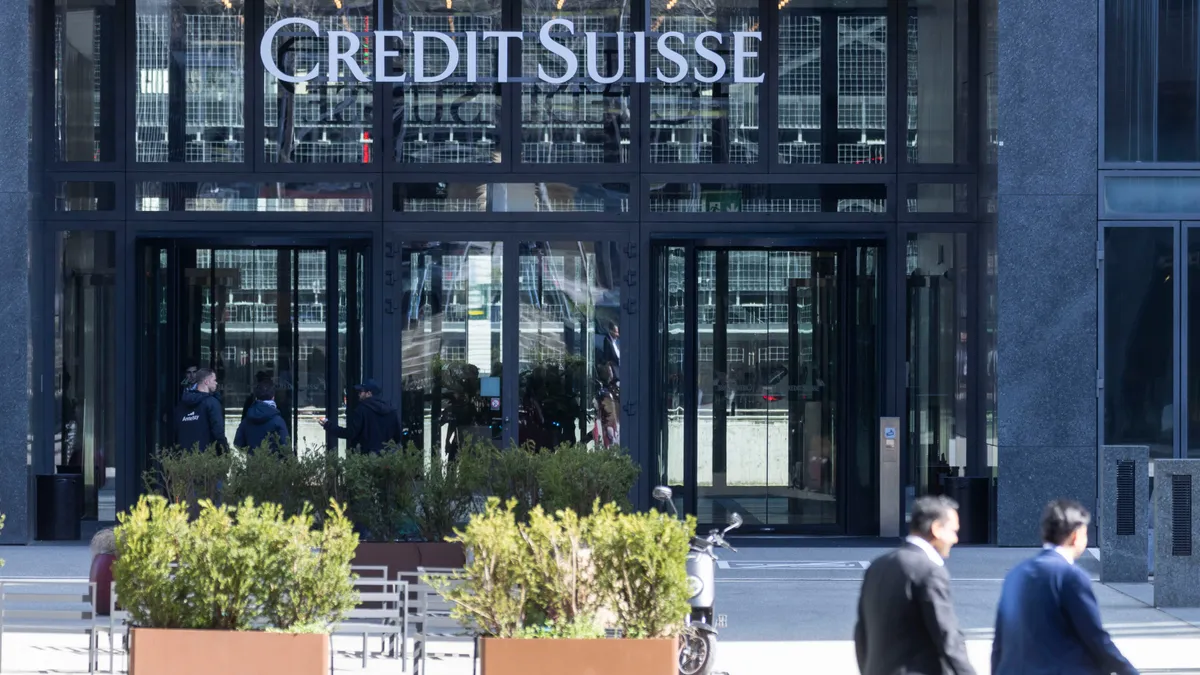Investors sued Credit Suisse on Thursday, alleging the bank overstated its financial outlook to shareholders before the Swiss lender’s shares crashed this week.
Credit Suisse saw the biggest one-day selloff in its history Wednesday, with shares plunging 30% at one point, after Saudi National Bank, its biggest shareholder, declined to boost its stake in the embattled bank.
The lawsuit, filed in a federal court in Camden, New Jersey, came on the same day Credit Suisse borrowed $54 billion from the Swiss National Bank in an attempt to bolster its liquidity and restore investor confidence.
The proposed class action claims the bank made “materially false and misleading statements” in its 2021 annual report, according to Bloomberg.
The Rosen Law Firm, representing the plaintiff, also sued Silicon Valley Bank and Signature Bank after regulators seized both banks last week, according to Reuters.
Credit Suisse did not disclose any material weakness with its internal controls in its 2021 annual report, the plaintiff asserted, according to Bloomberg.
The bank’s 2022 annual report, issued Tuesday after a delay to address questions from the Securities and Exchange Commission, does detail “material weaknesses” in its internal controls over financial reporting.
The bank said Tuesday’s report “fairly present[s]” the bank’s financial condition and that management is working on developing a plan to remediate weaknesses and strengthen control frameworks.
The lawsuit claims the bank’s chair, Axel Lehmann, misled investors by saying in several media interviews that deposit outflows had “basically stopped” and that only a few clients had fled the bank. Significant outflows continued through the fourth quarter, the plaintiff said.
Credit Suisse’s American depository shares fell 15.6% after 2022’s fourth-quarter results were released Feb. 9, according to Bloomberg. The bank’s stocks slipped further this month, when the news of 2022 annual report’s delay hit the market.
Credit Suisse declined to comment on the lawsuit to Bloomberg or Reuters.
Lehmann and Credit Suisse CEO Ulrich Körner are among the defendants in the complaint.
Meanwhile, Credit Suisse and rival UBS came out against a forced combination between the banks, even as planning for a government-orchestrated tie-up continues, Bloomberg reported Thursday, citing people familiar with the matter.
In private discussions, UBS said it would rather focus on its own stand-alone strategy centering on wealth than take on risks associated with the beleaguered bank, sources told the publication.
The Swiss government is reportedly exploring a wide range of scenarios to stabilize Credit Suisse, aside from merging the two lenders.














